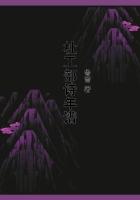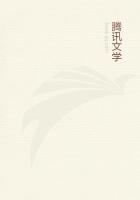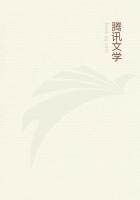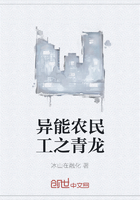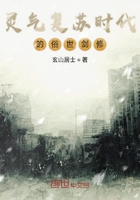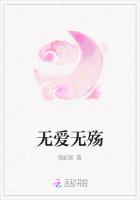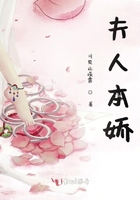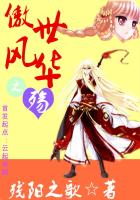"And, anyhow, you must come with me when I drive again.I'm going to start a trotter.""If I miss another drive may I be--lost for ever," said Billy, with the utmost sincerity."Never more will I get down, Benham, wherever you may take me.Short of muffing my fellowship I'm with you always....Will it be an American trotter?""It will be the rawest, gauntest, ungainliest brute that ever scared the motor-bicycles on the Northampton Road.It will have the legs and stride of an ostrich.It will throw its feet out like dealing cards.It will lift its head and look the sun in the eye like a vulture.It will have teeth like the English spinster in a French comic paper....And we will fly....""I shall enjoy it very much," said Prothero in a small voice after an interval for reflection."I wonder where we shall fly.It will do us both a lot of good.And I shall insure my life for a small amount in my mother's interest....Benham, I think I will, after all, take a whiskey....Life is short...."He did so and Benham strolled to the window and stood looking out upon the great court.
"We might do something this afternoon," said Benham.
"Splendid idea," reflected Billy over his whiskey."Living hard and thinking hard.A sort of Intelligentsia that is BLOODED....Ishall, of course, come as far as I can with you."13
In one of the bureau drawers that White in this capacity of literary executor was examining, there were two documents that carried back right to these early days.They were both products of this long wide undergraduate argumentation that had played so large a part in the ****** of Benham.One recorded the phase of maximum opposition, and one was the outcome of the concluding approach of the antagonists.They were debating club essays.One had been read to a club in Pembroke, a club called the ENQUIRERS, of which White also had been a member, and as he turned it over he found the circumstances of its reading coming back to his memory.He had been present, and Carnac's share in the discussion with his shrill voice and stumpy gestures would alone have sufficed to have made it a memorable occasion.The later one had been read to the daughter club of the ENQUIRERS, the SOCIAL ENQUIRERS, in the year after White had gone down, and it was new to him.
Both these papers were folded flat and neatly docketed; they were rather yellow and a little dog-eared, and with the outer sheet pencilled over with puzzling or illegible scribblings, Benham's memoranda for his reply.White took the earlier essay in his hand.
At the head of the first page was written in large letters, "Go slowly, speak to the man at the back." It brought up memories of his own experiences, of rows of gaslit faces, and of a friendly helpful voice that said, "Speak up?"Of course this was what happened to every intelligent contemporary, this encounter with ideas, this restatement and ventilation of the old truths and the old heresies.Only in this way does a man make a view his own, only so does he incorporate it.These are our real turning points.The significant, the essential moments in the life of any one worth consideration are surely these moments when for the first time he faces towards certain broad ideas and certain broad facts.Life nowadays consists of adventures among generalizations.
In class-rooms after the lecture, in studies in the small hours, among books or during solitary walks, the drama of the modern career begins.Suddenly a man sees his line, his intention.Yet though we are all of us writing long novels--White's world was the literary world, and that is how it looked to him--which profess to set out the lives of men, this part of the journey, this crucial passage among the Sphinxes, is still done--when it is done at all--slightly, evasively.Why?
White fell back on his professionalism."It does not make a book.
It makes a novel into a treatise, it turns it into a dissertation."But even as White said this to himself he knew it was wrong, and it slid out of his thoughts again.Was not this objection to the play of ideas merely the expression of that conservative instinct which fights for every old convention? The traditional novel is a love story and takes ideas for granted, it professes a hero but presents a heroine.And to begin with at least, novels were written for the reading of heroines.Miss Lydia Languish sets no great store upon the contents of a man's head.That is just the stuffing of the doll.Eyes and heart are her game.And so there is never any more sphinx in the story than a lady may impersonate.And as inevitably the heroine meets a man.In his own first success, White reflected, the hero, before he had gone a dozen pages, met a very pleasant young woman very pleasantly in a sunlit thicket; the second opened at once with a bicycle accident that brought two young people together so that they were never afterwards disentangled; the third, failing to produce its heroine in thirty pages, had to be rearranged.The next--White returned from an unprofitable digression to the matter before him.
14
The first of Benham's early essays was written in an almost boyish hand, it was youthfully *******ish in its nervous disposition to definitions and distinctions, and in the elaborate linking of part to part.It was called TRUE DEMOCRACY.Manifestly it was written before the incident of the Trinity Hall plates, and most of it had been done after Prothero's visit to Chexington.White could feel that now inaudible interlocutor.And there were even traces of Sir Godfrey Marayne's assertion that democracy was contrary to biology.
From the outset it was clear that whatever else it meant, True Democracy, following the analogy of True Politeness, True Courage, True Honesty and True Marriage, did not mean democracy at all.
Benham was, in fact, taking Prothero's word, and trying to impose upon it his own solidifying and crystallizing opinion of life.

